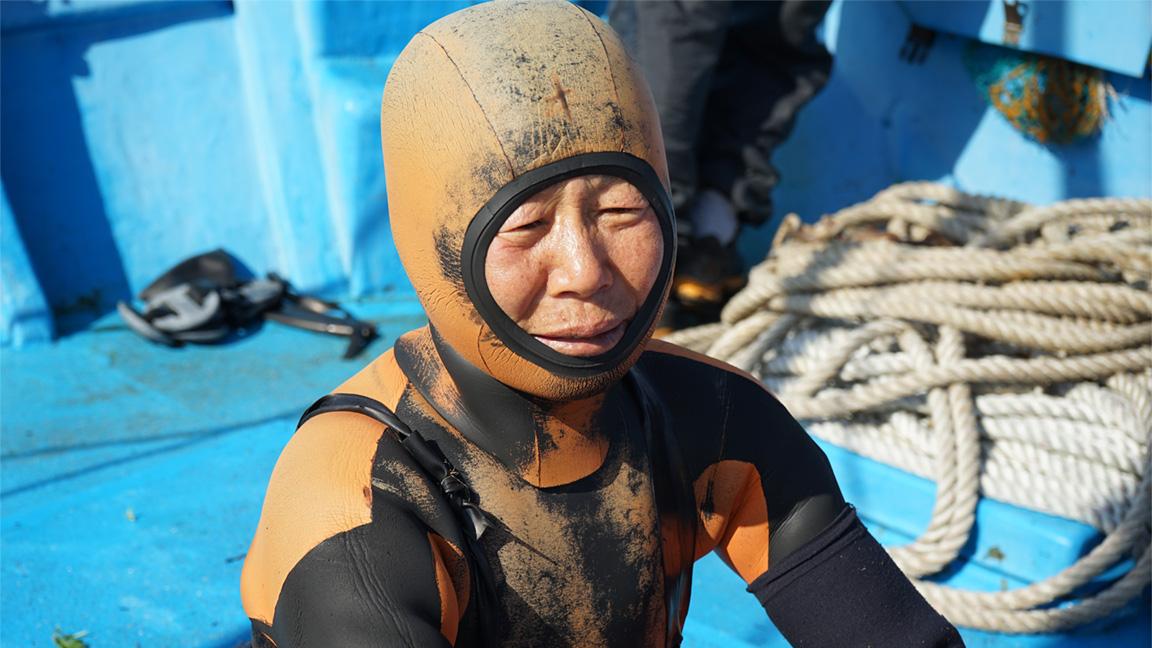A haeynyo waits to dive off the coast of Jeju Island. Commercial fisheries and climate change have emptied the waters, and now the divers are traveling further out to find their catch.
Reporter Heidi Shin spent time with the last generation of mermaids, or haeynyos, off South Korea's Jeju Island. We asked her to tell us more about her experience with these amazing women divers. The transcript has been lightly edited for clarity
Anne Bailey: Some call haeynyos Korean mermaids. Does the name fit?
Heidi Shin: I actually think the term mermaids can be misleading. It makes them sound mystical — even ethereal — whereas these women are really tough. While I was on board ship with them, they’d shout at me, and shove me out of the way. I landed on top of a mound of wet seaweed more than once, and I almost toppled over the boat's edge a few times.
And I was surprised by how loud and gruff their voices were. They’re hard of hearing — not from old age, but from years of diving and the pressure changes in their ears.
That said, the haeynyos are extremely skilled divers, so they’re mermaid-like in this way. They’re so skilled at navigating the water, in fact, they’ve been sent to dive in far off places, like Russia, Japan and parts of Southeast Asia.
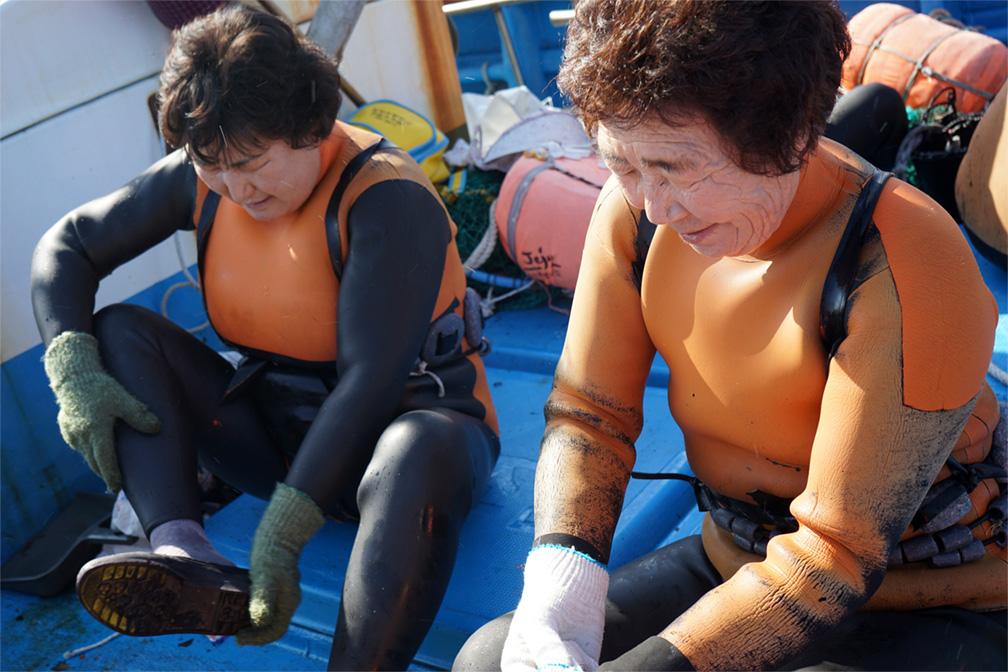
AB: Until what age do these women dive? How old are the oldest divers?
HS: Some dive even until their 80s. But most of the daughters I met wish their mothers would retire. One of the daughters I interviewed broke down in tears when I asked her this question. Diving is really dangerous physical work. There are sharks, commercial ships, and some really strong riptides — which is why a few divers don’t re-emerge from the waters each year.
In the group I dove with, there was even an underwater buddy system. The younger divers look out for the older divers, when it’s time to come ashore. But interestingly, they say it’s the older divers, the ones in their 80s, who find the best catch. They’re the most experienced so they know where to look. And even when they have trouble walking on land, they can still float and swim in the water.
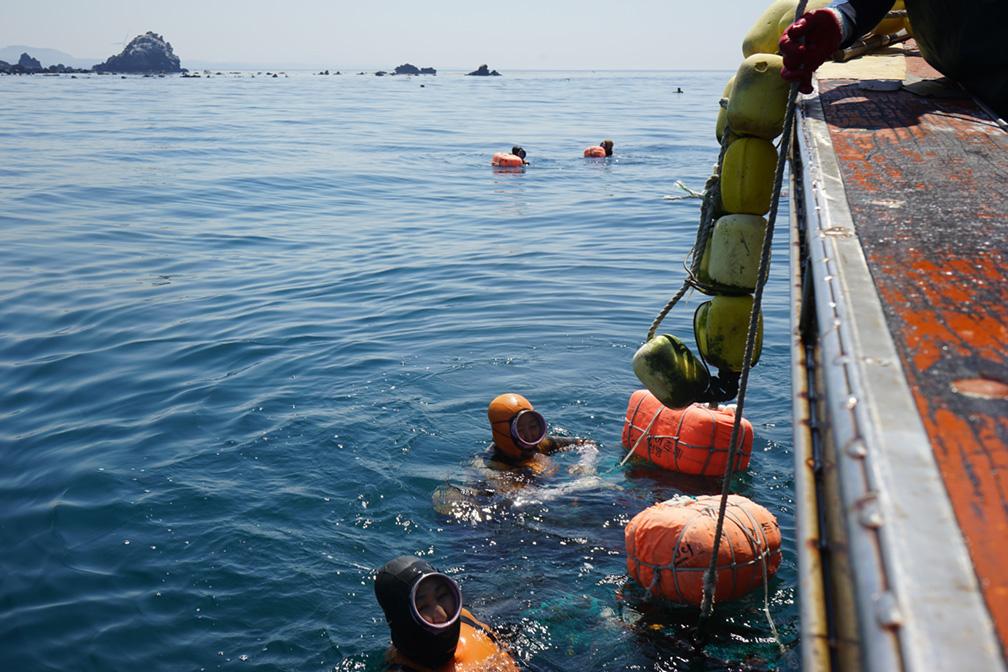
AB: How deep can they dive? And what tools do they use?
HS: Haeynyos can dive up to 60 feet in the water — this without any oxygen tanks. They actually wear weighted lead belts to help keep them underwater at these depths. Before leaded belts existed, they would tie rocks around their waists. And they use what look like small, hand-held garden hoes to extract abalone and octopus from rocks on the ocean floor.
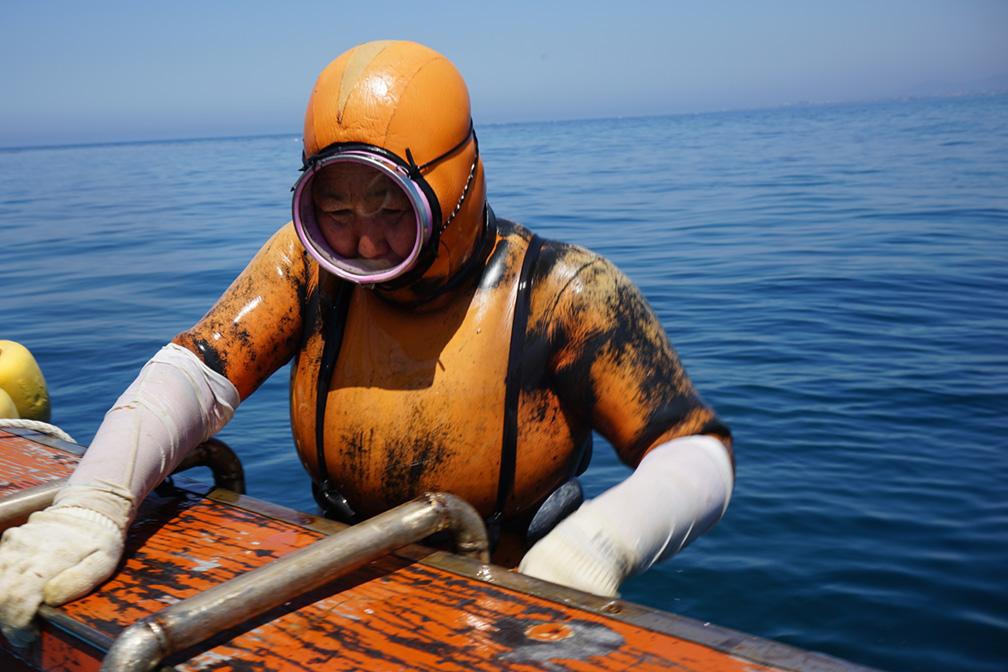
AB: Why don’t the men dive?
HS: I’ve heard a number of different theories about this. Initially, there was a government loophole, which didn’t require women to pay taxes on their diving work. So it was more profitable for women to dive. Some say it’s also because women have more body fat, so they can endure the frigid waters for longer than the men can. Also it was an issue of numbers. For years, there were more women than men living on Jeju Island. The island lost many of its fishermen to storms at sea. Then there was a political massacre in the 1940s targeting men and further tipping the gender scales. This put women at the helm.
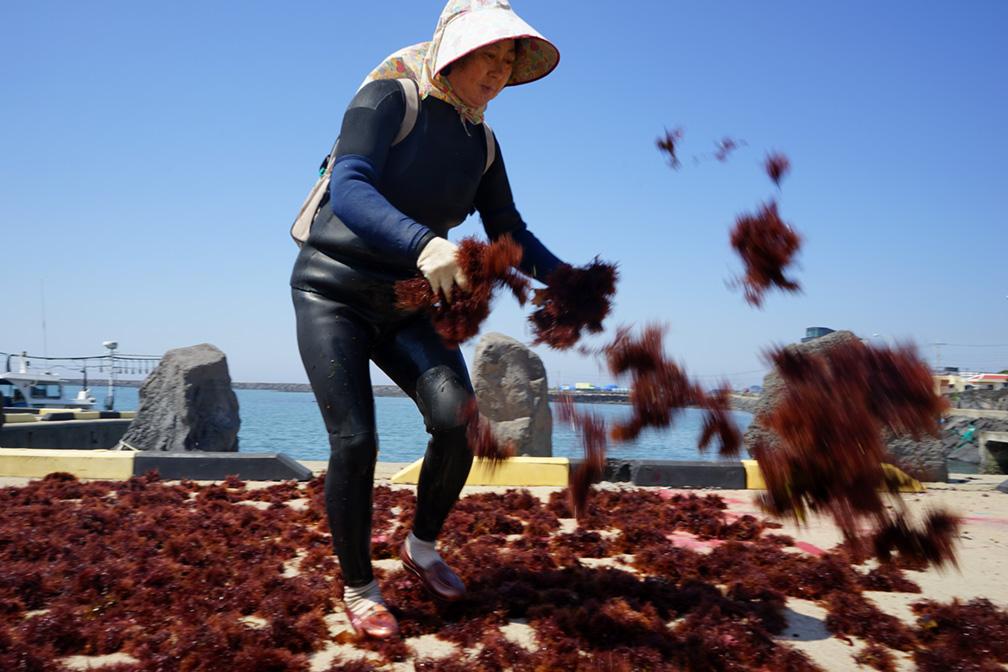
AB: How do the people of Jeju Island feel about the end of the haeynyo tradition?
HS: Interestingly, for most of history, being a haeynyo wasn’t something to be proud about. It was considered kind of base, physical labor. Their outfits were considered very risqué. Before the 1970s, when the government provided haeynyos with wetsuits, the women dove topless with just a loincloth. Children often hid the fact that their mothers were haeynyos.
But now we’re coming upon the last generation of these divers, as their daughters aren’t continuing with the tradition. And with this there’s been a change in public perception. There’s a respect for the divers on the island now. They’re even up for a UNESCO bid to be recognized for their cultural contributions.
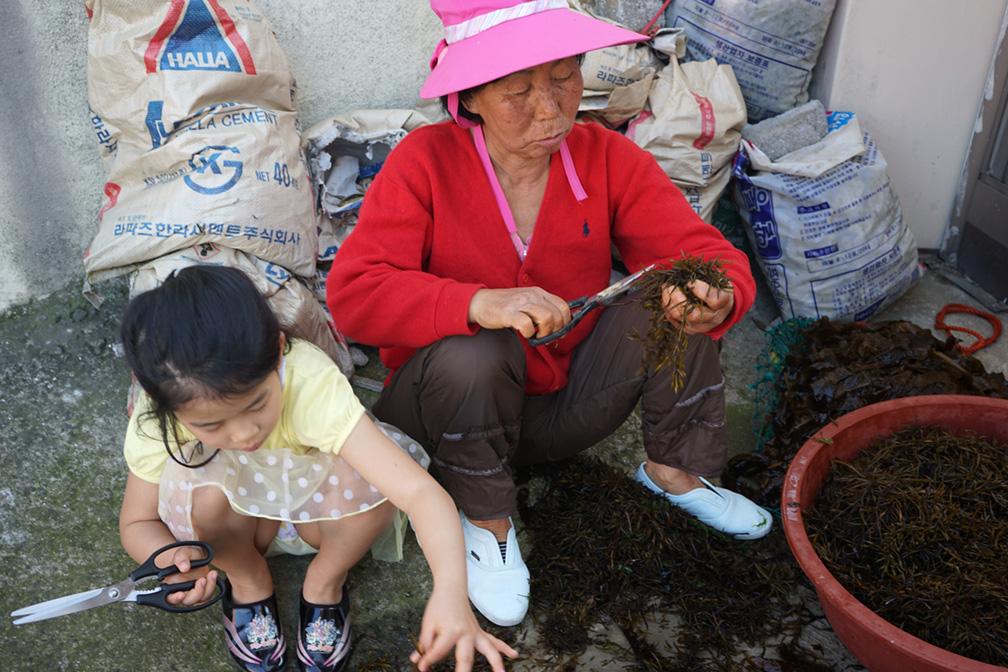
AB: You’re Korean yourself and you traveled to Jeju Island for this story with your mother. What was that experience like for you?
HS: My mother connected to the elderly divers in a special way. They were about the same age. They’re asking the same questions about what it means to grow older. And they’re coming to some of the same conclusions.
Kyung Ja, one of the divers I interviewed, shared that she needed to work because it was better for her marriage. Being at home all day, she and her husband would get on each other’s nerves. Plus, she doesn’t want to depend on her kids for an income. It’s working, feeling a sense of purpose, and having a community of other women divers that actually keeps her healthy and alive.
The diving community really is a sisterhood. If one of the divers doesn’t show up in the morning, none of them go out to sea. They trek to the missing diver’s house or the hospital to find out what’s happened. They’re closer than any work colleagues I’ve ever had.
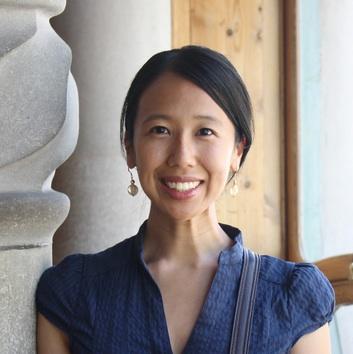
Every day, reporters and producers at The World are hard at work bringing you human-centered news from across the globe. But we can’t do it without you. We need your support to ensure we can continue this work for another year.
Make a gift today, and you’ll help us unlock a matching gift of $67,000!
